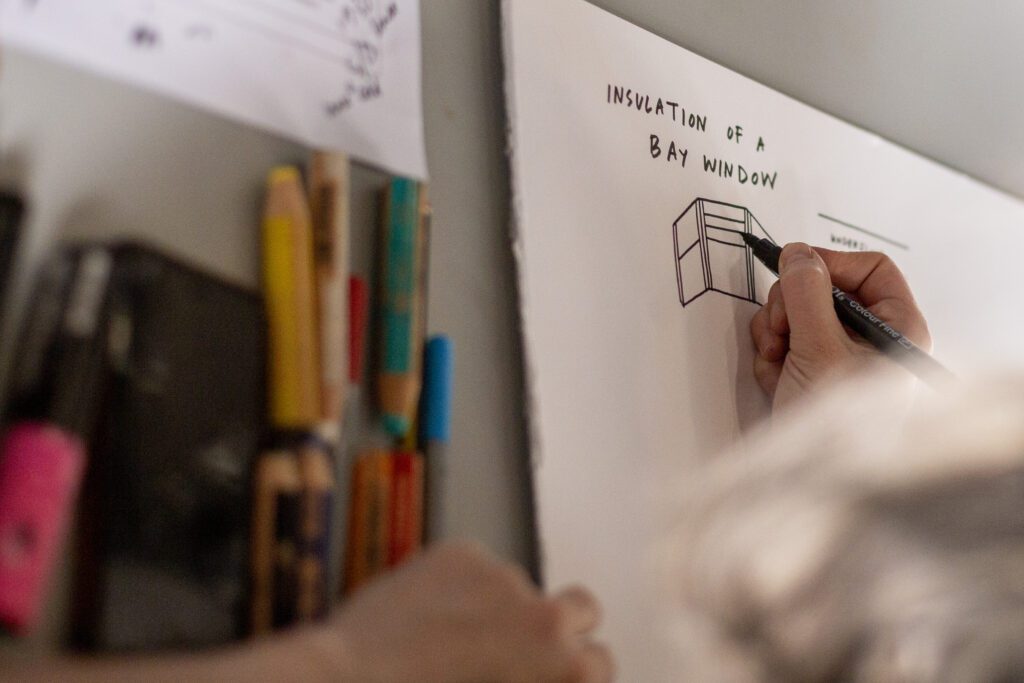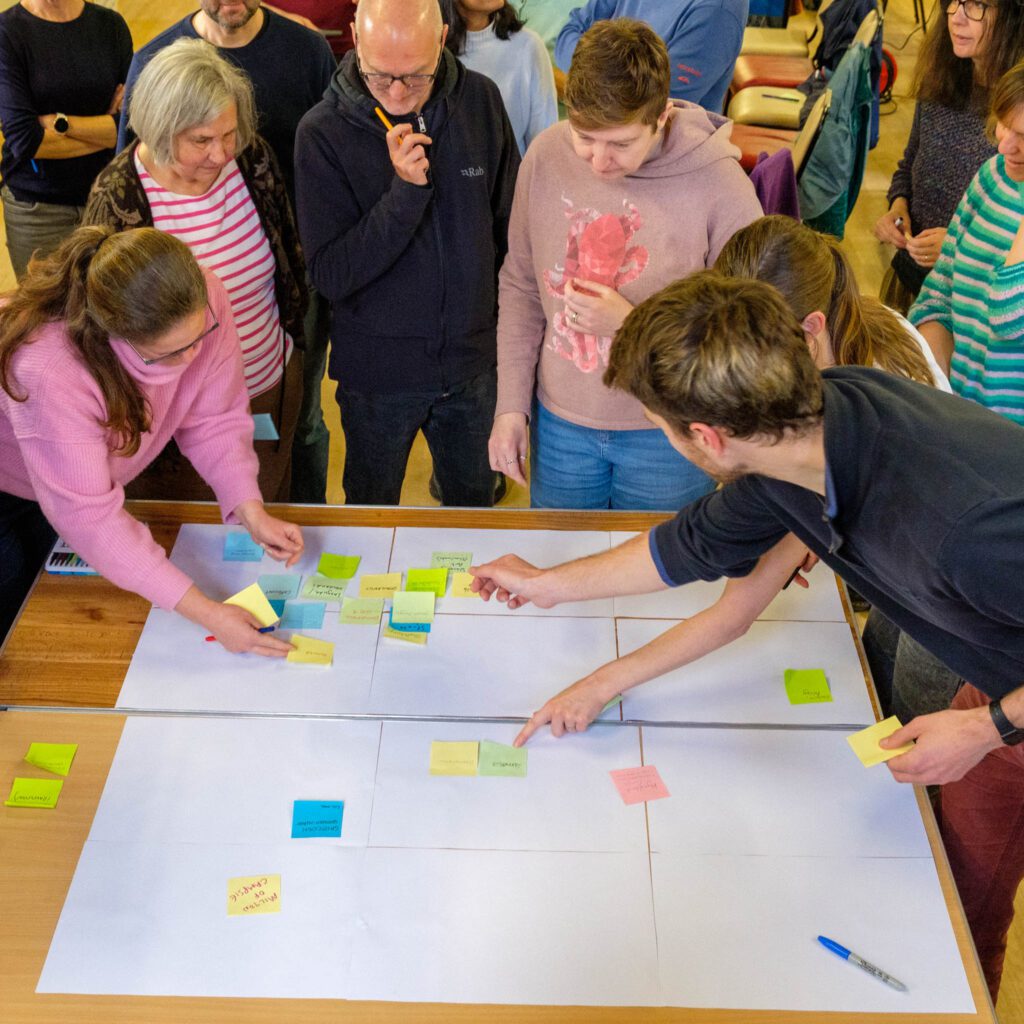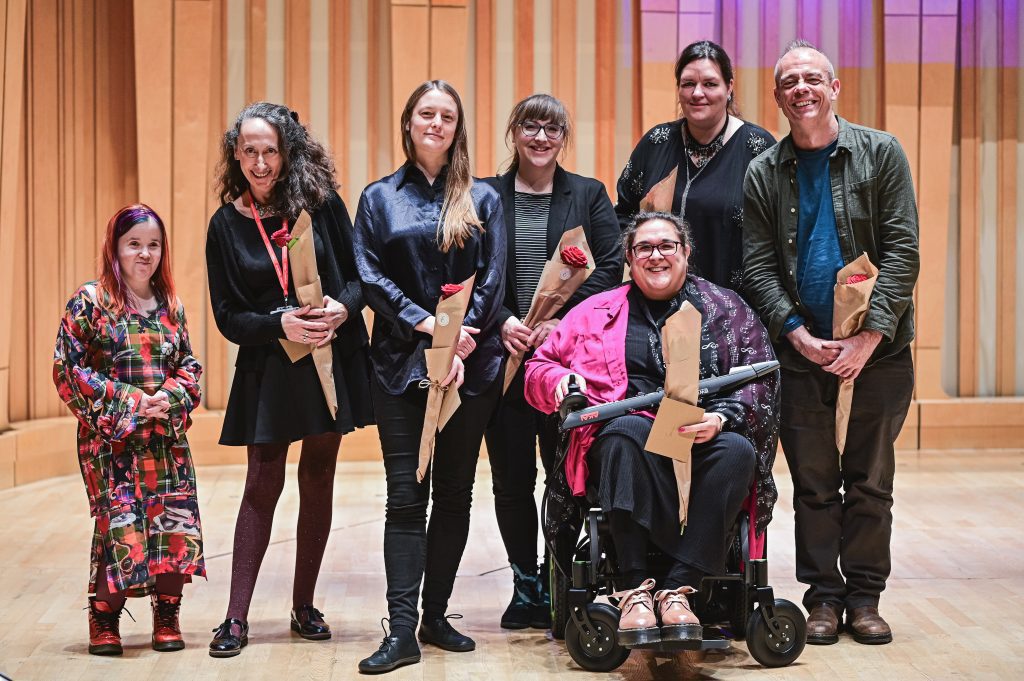17 April 2025
A community-based approach to decarbonisation: Loco Home Retrofit.
William Grant Foundation

Key learnings:
- Providing clear, independent guidance and practical support helps homeowners navigate the complexity of retrofitting with confidence.
- Place-based models can make retrofitting more accessible by fostering trust through personal connections and shared experiences.
- Developing local supply chains and upskilling tradespeople supports the local economy while improving the quality and availability of retrofit services.
- Encouraging those who can afford to decarbonise first helps create momentum and lay the groundwork for a more equitable transition to low-carbon living.
For many homeowners, the path to decarbonising and retrofitting their homes for better energy efficiency is filled with uncertainty. Who can they trust? Where should they begin? Glasgow-based Loco Home Retrofit was established to address these questions and offer a community-led solution.
As a cooperative, they put homeowners first, ensuring that retrofitting – the process of modifying an existing building to improve energy efficiency and sustainability – is accessible, reliable, and built on trust in local networks. Their approach is about more than just upgrading homes; it’s about healthier, well-maintained houses and driving down carbon emissions while making retrofit more achievable and affordable for the mass market.
A one-stop shop for support
Loco Home Retrofit works directly with homeowners, community organisations, tradespeople, and professionals in the Greater Glasgow area, providing independent advice and practical support (in-person and through online resources) to simplify the process.
They offer services to homeowners, such as the Whole Home Plan, which provides a detailed retrofit strategy, and the Heat Pump Test Drive, an interactive tool that allows homeowners to experience a heat pump installation before committing.
But their impact goes beyond upgrading homes – it’s about transforming local economies. The team also supports tradespeople by offering training around energy-efficient methods and materials. By helping develop local supply chains and inspiring small contractors to undertake retrofit projects they help ensure that jobs and investment stay local, supporting community wealth building and strengthening economic resilience.
Loco Home Retrofit’s approach is to establish a local, community-led one-stop shop – an accessible, trusted source of independent advice for property owners and local trades. They believe this approach removes barriers, making retrofitting more approachable and less risky. By acting as a single point of contact, they guide homeowners from initial awareness to project completion – simplifying an otherwise complex process

Collective thinking in action at Loco Home Retrofit’s AGM.
Photo: Loco Home Retrofit.
Building trust to inspire action
Trust is a key part of Loco Home Retrofit’s model at three levels:
- Professional trust – qualified experts providing advice, such as architects or Passive Haus Consultants.
- Impersonal trust – such as knowing that energy efficient programmes have the endorsement from government.
- Interpersonal trust – leveraging word-of-mouth from friends, neighbours, and local networks to make retrofitting feel like a natural choice.
This last component is particularly vital. As Chris Carus, Executive Officer at Loco Home Retrofit says,
“People are more likely to explore retrofitting options if they hear positive stories from someone they relate to – a neighbour who has successfully upgraded their home, or a community group sharing their experience in a local online forum.”
By embedding themselves in communities and amplifying these conversations, Loco Home Retrofit drives momentum in a way that national initiatives often fail to do.
Unlocking accessible retrofits with early adopters
The organisation focuses on homeowners who can afford retrofits but may lack the expertise, time, or confidence to make it happen. They believe the biggest polluters should act first – wealthier homeowners serving as early adopters while supply chains are still maturing, in order to make retrofitting easier for others to follow.
“This is about shifting mindsets and building a body of evidence and practice to drive long-term change.” says Chris.
However, funding for this approach is scarce. Many funders prioritise immediate assistance for the most disadvantaged, and some are unable to offer grants that could be considered as a benefit for individuals, especially those not experiencing poverty.
The runway to success
Through our Natural and Built Environment strand, we provide flexible funding to support the organisation’s work – and its transformation.
“We appreciate it when a funder is willing to be brave and invest in our idea. The trust this funding provides is crucial because we need a lot of runway to refine and develop this thing until it can fly by itself,” says Chris.
With this flexibility, the organisation has been able to experiment and refine its approach in ways that would have been difficult to do with a restricted grant.
For example, a less conventional recruitment strategy led to hiring a builder with hands-on experience and a good understanding of tradespeople’s needs, rather than a typical industry professional.
“Their fresh perspective reshaped how we engage with contractors,” explains Chris, “helping us secure further funding from the Scottish Government and provide specialised training for gas engineers, builders, and joiners.”
Fit for a greener future
The story of Loco Home Retrofit demonstrates that a different approach to climate action is possible. As the movement for decarbonisation grows, their place-based model offers a powerful example of how retrofit can be made accessible, trusted, and effective – one community at a time.
Read more about Loco Home Retrofit here.



